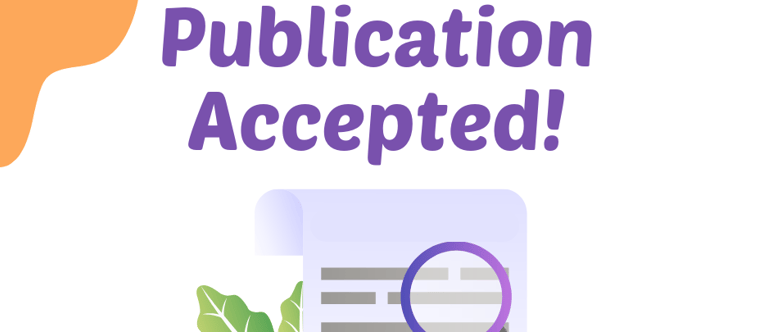How to publish your research effectively in 2025
Learn successful ways to publish your research effectively. Discover the better ways to navigate the challenges of academic publishing, from choosing the right journal to managing open access, fees, and intellectual property.
Marvin De los Santos
5/6/20253 min read
Publishing academic research can be a daunting journey, especially when considering the diverse aspects that influence the decision to publish. From choosing between open access and traditional journals to understanding fees, indexing, and avoiding predatory publishers, researchers often find themselves overwhelmed. Additionally, the need to strategically report research findings, especially when intellectual property protection or rapid dissemination through preprints is a priority. These all add to the complexities of academic publishing. This guide addresses the multifaceted considerations involved in academic publishing and how Plethoryt can help streamline the process.


Feeling confused about the publication process?
Have you ever felt lost trying to navigate the publication landscape? You're not alone. Many researchers, whether early-career or seasoned scholars, often struggle with making the right choices regarding journal selection, open access options, or even how to properly format their work for submission.
Does this confusion sounds familiar?
Many researchers face similar challenges in the academic publishing world. Perhaps you’ve encountered some of the following situations:
Confusion about Journal Choices: You might be unsure whether to opt for an open-access journal that requires a fee or a subscription-based journal. You might also wonder whether the journal is worth the cost or whether the impact factor matters for your specific research.
Understanding Peer Review: You might be unsure about which type of peer review fits your research – is it a traditional review, or do you need something faster like a preprint submission? And once submitted, navigating the review process can sometimes feel like a black box, leaving you uncertain about your chances of acceptance.
Deciding on the Type of Article: Is your work an original research article, a short report, or perhaps a methodology piece? You could be unclear on where your research fits within the broad spectrum of academic publishing.
Indexing Concerns: You might also be thinking about whether the journal you’ve selected is indexed in major databases like Scopus or Web of Science. Indexing is crucial, especially for visibility, but it's often difficult to figure out which journals are the best fit for your research goals.
Protecting Intellectual Property: You may have sensitive data, or perhaps you're concerned about your intellectual property. Should you publish first and worry about patents later, or do you need to secure your intellectual property before sharing your findings with the world?
Avoiding Predatory Journals: With the rise of predatory journals, knowing which platforms to trust is more important than ever. It's frustrating when you are unsure whether a journal is legitimate, or worse, if it’s exploiting researchers for fees without offering any real benefit.
The challenges are real
Publishing academic work requires more than just submitting a well-written manuscript. Researchers must account for several factors, including:
Open Access vs. Traditional Publishing: Balancing visibility with publication costs can be challenging. Open access often means higher fees, while traditional routes might limit readership.
Publication Fees: Knowing the cost upfront is crucial, as many journals charge processing fees that can be unexpected.
Stage of Research: Deciding whether to publish preliminary findings or a comprehensive study affects the choice of journal and publication format.
Review Types and Processes: Navigating peer review, open peer review, or even post-publication review requires preparation and understanding of each process.
Journal Metrics: Impact factor, h-index, and other metrics influence journal choice and the perceived value of your work.
Indexing: Ensuring that the chosen journal is indexed in reputable databases (like Scopus or Web of Science) enhances discoverability.
Audience Type: Academic journals vary in focus; choosing the right one can affect how well the research resonates with the intended readership.
Avoiding Predatory Journals: Identifying and steering clear of journals that lack rigorous peer review or transparent practices is vital.
Intellectual Property Considerations: Research with potential commercial applications may need strategic reporting to protect IP while sharing findings.
Early Dissemination and Preprints: For rapid communication, preprints can be valuable, but they come with risks related to priority claims and quality assurance.
Publication route helper
Answer the following questions to determine the most suitable publication route for your research.
How Plethoryt can support your publication journey
At Plethoryt, we understand that academic publishing is not just about writing well—it's about making strategic choices that maximize the impact and credibility of your work. Our publication support services are designed to guide researchers through the entire process, from journal selection to manuscript refinement, ethical considerations, and post-submission strategies. We help navigate open access decisions, review processes, and even intellectual property concerns, ensuring your research reaches the right audience without compromising quality or integrity.
By partnering with Plethoryt, you gain access to expert advice tailored to your specific needs—whether you’re publishing preliminary findings or comprehensive studies. Let us help you publish with confidence.
Subscribe to our newsletter
Enjoy exclusive special deals available only to our subscribers.